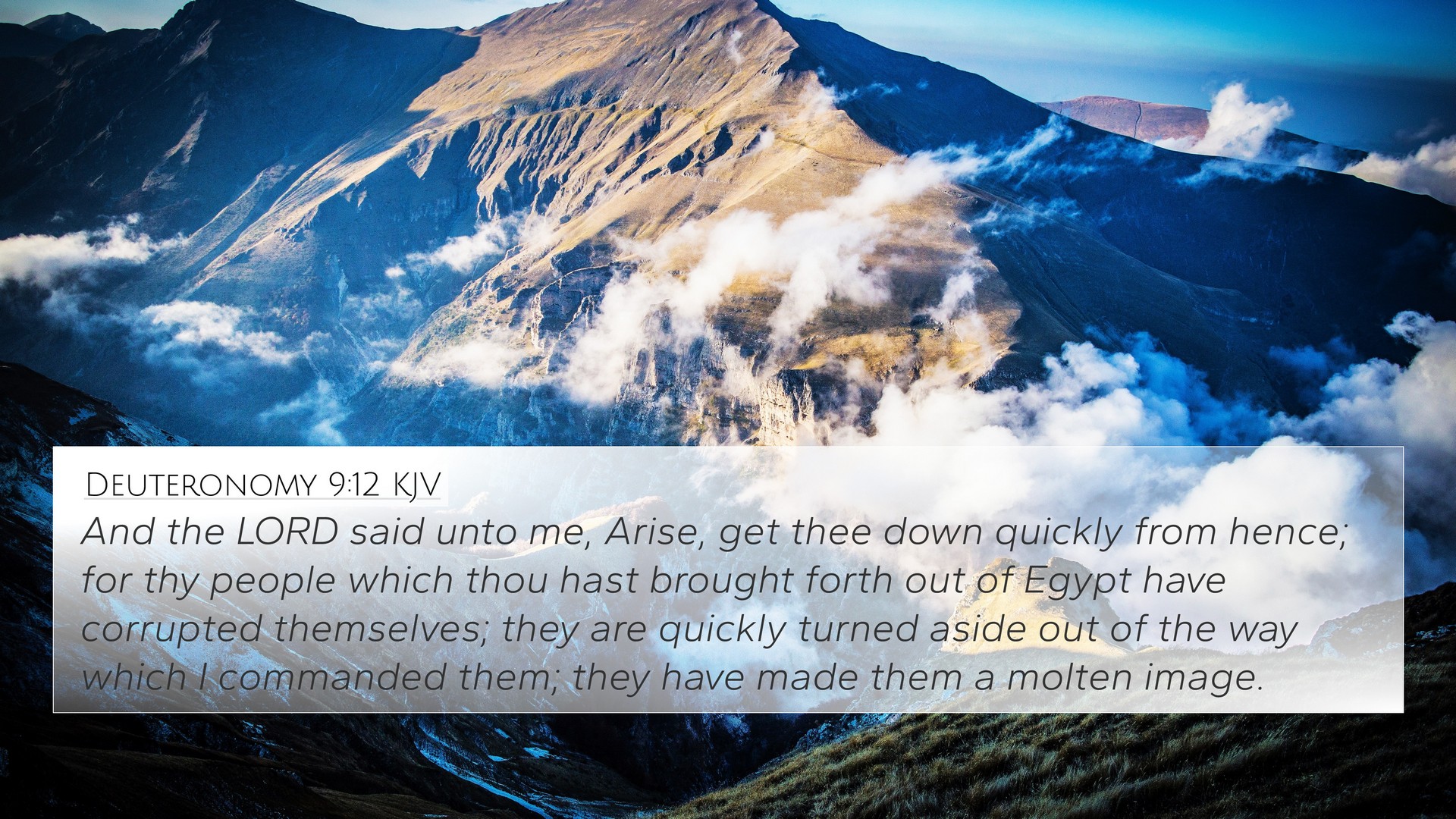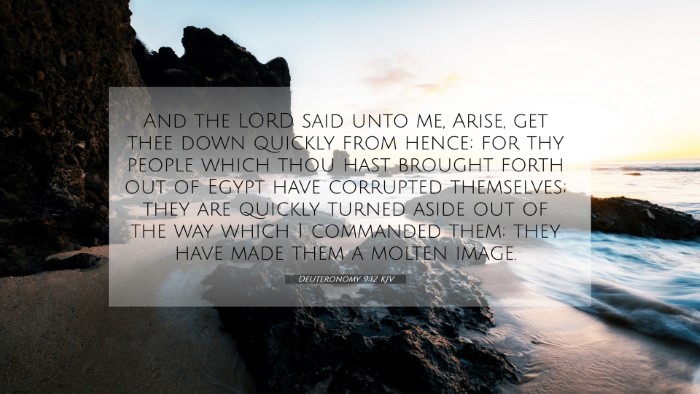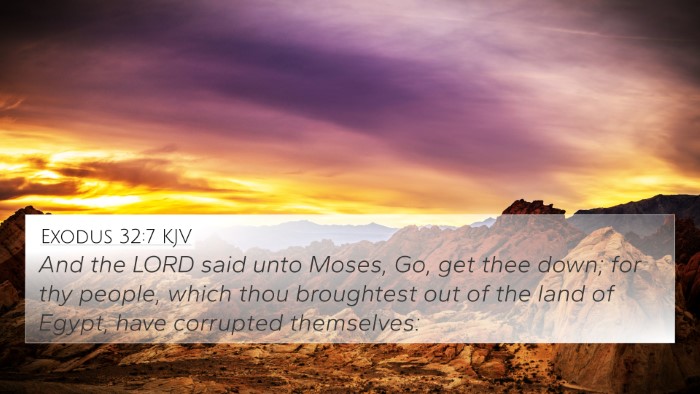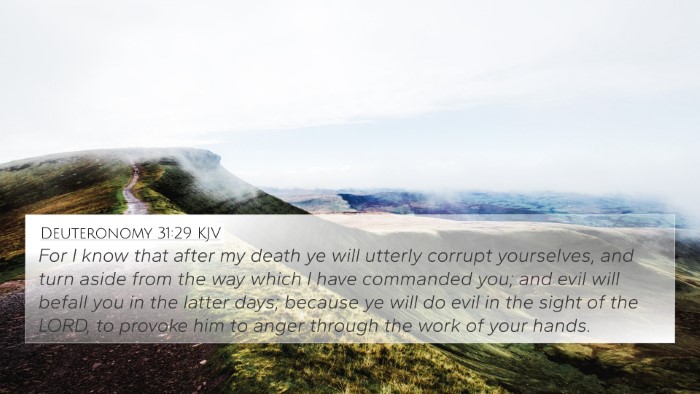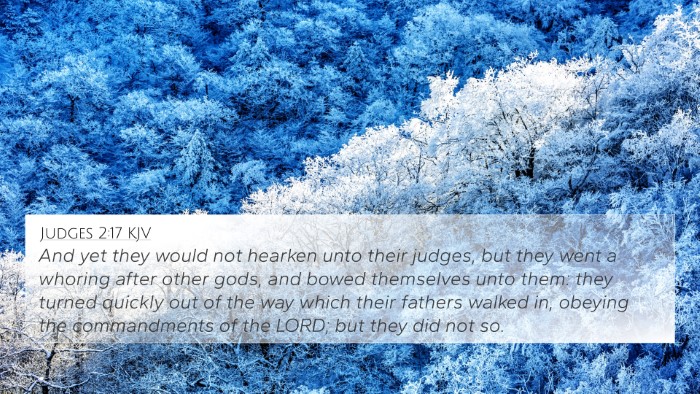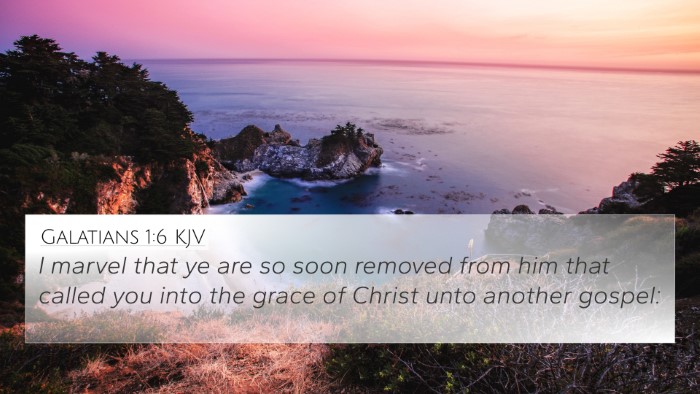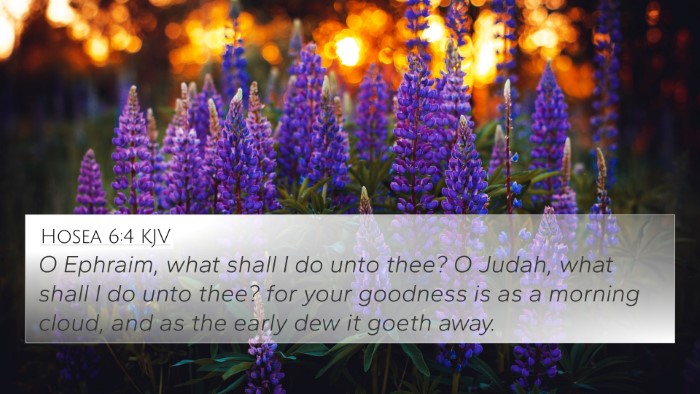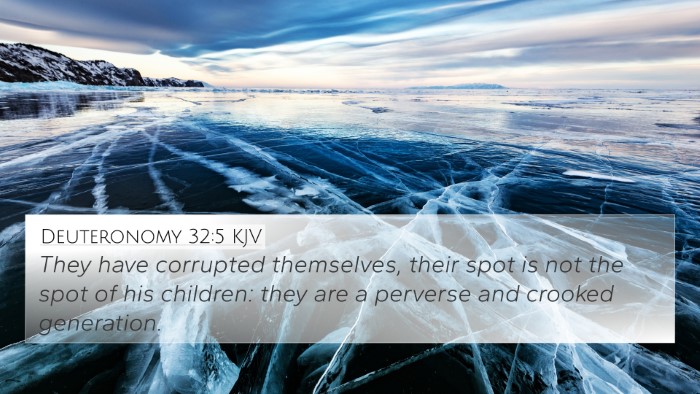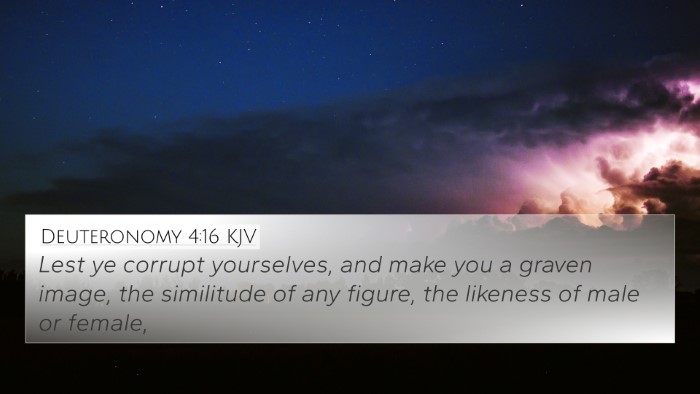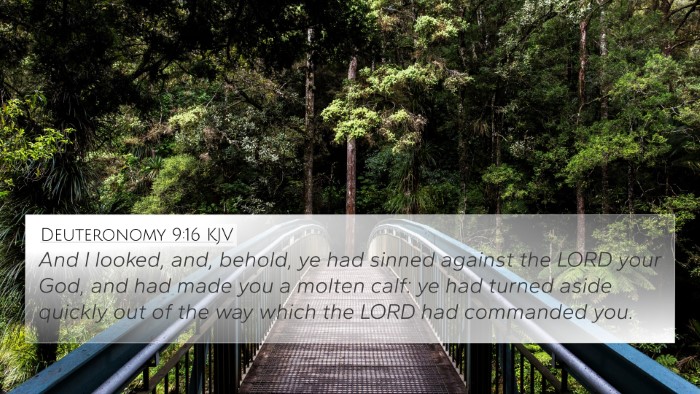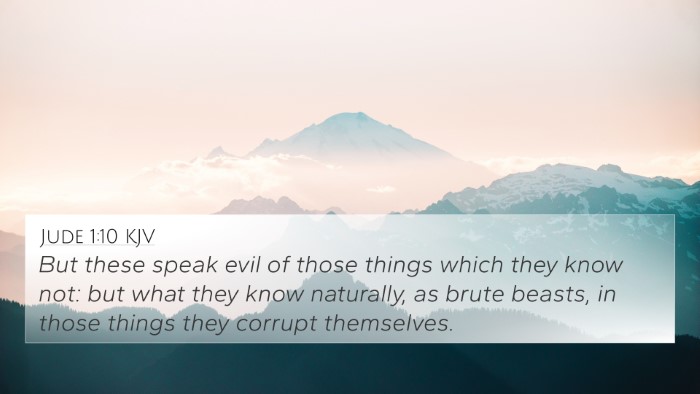Deuteronomy 9:12 Meaning and Interpretation
In Deuteronomy 9:12, the Lord commands Moses to remind the Israelites of their rebellion and disobedience, illustrated vividly through their worship of the golden calf. This verse reflects a critical moment in the Israelites' journey, revealing themes of human frailty and divine patience. It serves as a reminder of the covenant relationship between God and His people, emphasizing the seriousness of their failings and the need for accountability.
Contextual Background
The occasion for this verse is a reflection on Israel's history. Just after recounting the incident of the golden calf, this verse encapsulates a pivotal lesson about obedience to God's commandments. The Israelites had repeatedly faced challenges and temptations, often faltering in faith, which necessitates Moses' leadership and God's guidance.
Insights from Public Domain Commentaries
-
Matthew Henry:
Henry elaborates on the tendency of the Israelites to stray, pointing out their reliance on visible idols rather than faith in the unseen God. He emphasizes that this incident illustrates not just the actions of a few, but a collective attitude of rebellion that warrants serious admonition.
-
Albert Barnes:
Barnes indicates that this admonition serves as a reminder of the dire consequences of sin. He stresses that the golden calf is not just an idol; it symbolizes the broader rebellion against God's authority. The mention of God's anger highlights the necessity of repentance among the people.
-
Adam Clarke:
Clarke points to the cultural and spiritual implications of idol worship within the text, suggesting that the verse serves as a warning against complacency in faith practices. Clarke's insight illustrates how easily people can turn from true worship to false representations of divinity, leading to spiritual ruin.
Thematic Bible Verse Connections
-
1 Corinthians 10:7:
"Do not be idolaters, as some of them were; as it is written: 'The people sat down to eat and drink, and rose up to play.'" This New Testament verse connects directly to the warnings found in Deuteronomy regarding idolatry and its consequences.
-
Exodus 32:8:
"They have turned aside quickly out of the way which I commanded them." This verse directly recounts the incident of the golden calf, linking back to the themes of rebellion and disobedience emphasized in Deuteronomy 9:12.
-
Psalm 106:19-23:
"They made a calf in Horeb and worshiped the molten image." This Psalm reflects on Israel's history of rebellion, reiterating God’s mercy despite their failings, resonating with the sobering reminder found in Deuteronomy.
-
Hebrews 3:17:
"But with whom was He grieved forty years? Was it not with those who sinned, whose corpses fell in the wilderness?" The New Testament perspective aligns with the idea of God’s anger and judgment towards disobedience.
-
Romans 1:21-23:
"Because, although they knew God, they did not glorify Him as God, nor were thankful, but became futile in their thoughts." This reflects the parallel danger of idolatry and turning away from divine truth, akin to the errors faced by the Israelites.
-
Isaiah 44:9-20:
A stark warning against idol making, which reflects the futility and absurdity of worshipping creations instead of the Creator, amplifying the lessons of Deuteronomy 9:12.
-
Galatians 5:19-21:
"Now the works of the flesh are evident, which are: adultery, fornication, uncleanness, lewdness, idolatry..." This passage warns against various sins, including idolatry, drawing a connection to the consequences of the people’s actions during the golden calf episode.
-
Revelation 21:8:
"But the cowardly, unbelieving, abominable, murderers, sexually immoral, sorcerers, idolaters, and all liars shall have their part in the lake which burns with fire and brimstone." This eschatological warning links back to Deuteronomy, emphasizing the permanence of sin and idolatry.
Connections between Bible Verses
The connections between Deuteronomy 9:12 and the cross-referenced verses highlight a critical understanding of sin's nature and its repercussions. In both Testaments, there is a consistent theme of God’s righteousness contrasted with human disobedience.
Conclusion
Deuteronomy 9:12 serves as an essential reminder of the need for fidelity to God's commands, revealing how easily a community can stray from true worship. Through the combined insights of biblical commentators, it becomes evident that understanding this verse requires recognizing both its historical context and its ongoing relevance in teachings about faithfulness, accountability, and the danger of idolatry.
Tools for Bible Cross-Referencing
Exploring the connections in the Bible can be greatly enhanced by utilizing tools like a Bible concordance, cross-reference Bible study guides, and other Bible reference resources. These aids allow for a deeper understanding of links between Old and New Testament teachings and the rich tapestry of scripture.
